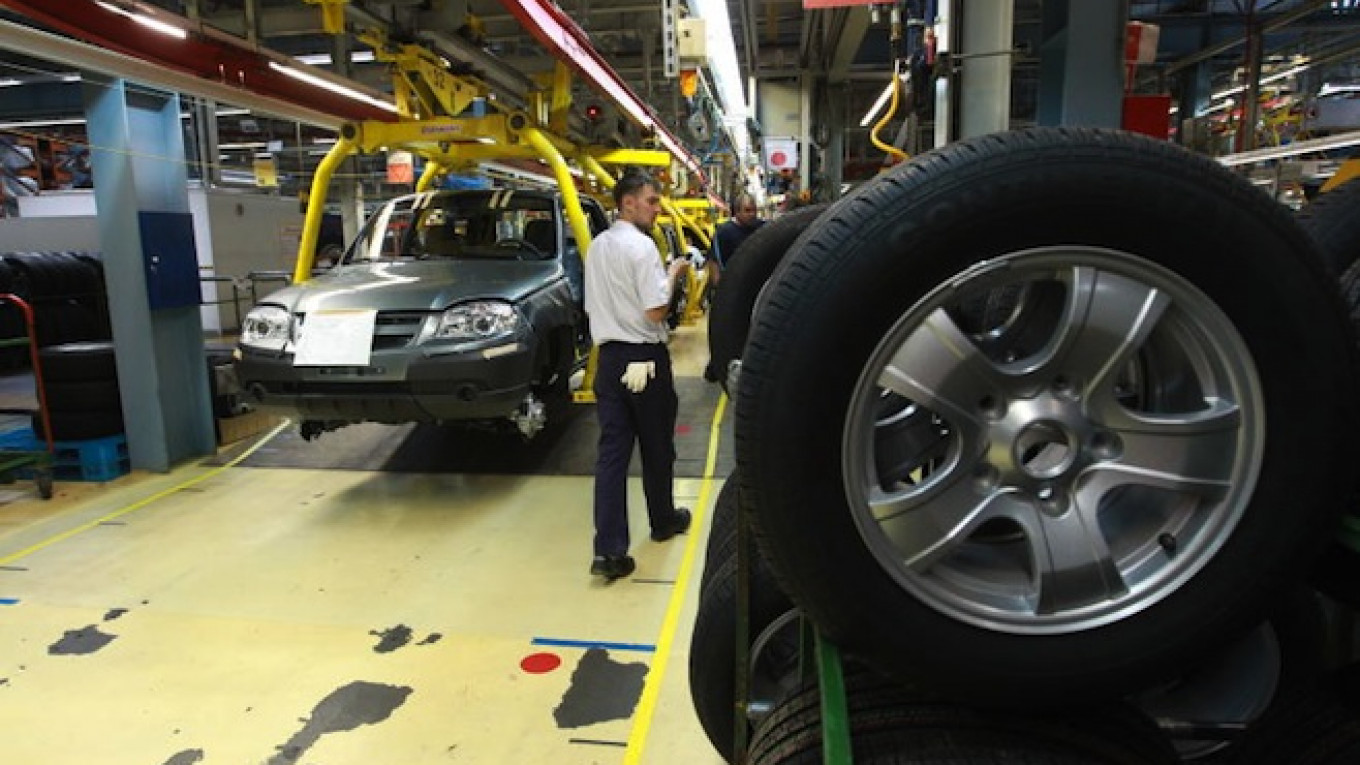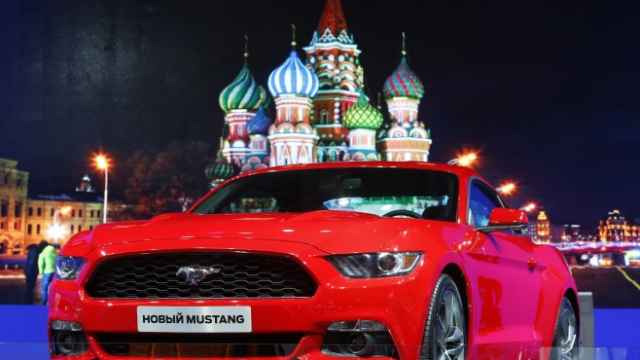Russia's cheap but often-derided Lada car is enjoying a modest turnaround from sliding sales, perhaps thanks more to a state scheme designed to counter Western sanctions than any burst of patriotism over the Ukraine crisis.
Russia's top carmaker AvtoVAZ said Thursday that sales of Ladas, which were first built in the Soviet era, grew 4.7 percent in October and year-on year domestic sales rose 0.8 percent — the first such increase in 19 months.
The main reason is a scheme under which the state provides cash incentives for Russians to buy new cars if they sell their old ones for scrap — part of President Vladimir Putin's plans to boost domestic industry as the sanctions bite.
"It looks like it was the state's scrappage scheme that allowed for AvtoVAZ's sales rise in October," said Andrei Rozhkov, an analyst with the Metropol investment company. "AvtoVAZ doesn't reveal how many cars were sold at a discount, but it is unlikely that it was less than 30 percent."
Since the fall of Communism, Russians have developed a liking for foreign car designs but the market for imported and domestic makes alike has suffered badly as the sanctions have helped to push the economy close to recession.
Last month AvtoVAZ, a pillar of the command economy in Soviet times that is now controlled by the Renault-Nissan alliance, said Lada sales in Russia could fall 20.5 percent this year to 425,000 units.
However, the ailing ruble, which has lost around a quarter of its value against the dollar this year, has pushed up the price of imports. This has helped to prop up the sales of AvtoVAZ, whose cheapest model — the Lada Granta — sells for just 289,000 rubles ($6,300).
Most Russians have no option but to limit spending because of the economic downturn aggravated by the sanctions, imposed by the United States and European Union over Russia's involvement in the crisis in Ukraine. Lower-end supermarkets have reported strong profits as consumers watch prices.
Putin has also urged Russian industry to become less reliant on foreign components and imported goods, in the hope of boosting quality and output.
Prime Minister Dmitry Medvedev has joined the campaign by announcing steps to limit the number of imported cars state officials can buy, but analysts say the scope for a "patriotic surge" is limited as the purely Russian brands, Lada and UAZ, occupy less than 20 percent of the market.
Soviet-Era Popularity
Under the scrappage scheme, the government in August earmarked 10 billion rubles until the end of the year to encourage new car purchases. This is expected to subsidize the sale of more than 170,000 passenger and light commercial vehicles, buses and trucks.
Lada cars are built in Togliatti, about 1,000 kilometers southeast of Moscow on the Volga River. Originally based on the Italian-designed Fiat 124 of the 1960s, Lada's first model rolled off Soviet production lines more than 40 years ago. Its producers said they knew better than anyone how to build cars able to survive on Russian roads.
It was only last year that AvtoVAZ ended production of the Lada Classic series, a car that was once the prize of the nation. Although the outmoded box-like series of family cars was ridiculed abroad, many Russians consider it a last link with an era when they believed the Soviet Union could win the Cold War.
The Lada has also been the butt of jokes abroad because of its square shape and reputation for breaking down when you least want it to.
A Message from The Moscow Times:
Dear readers,
We are facing unprecedented challenges. Russia's Prosecutor General's Office has designated The Moscow Times as an "undesirable" organization, criminalizing our work and putting our staff at risk of prosecution. This follows our earlier unjust labeling as a "foreign agent."
These actions are direct attempts to silence independent journalism in Russia. The authorities claim our work "discredits the decisions of the Russian leadership." We see things differently: we strive to provide accurate, unbiased reporting on Russia.
We, the journalists of The Moscow Times, refuse to be silenced. But to continue our work, we need your help.
Your support, no matter how small, makes a world of difference. If you can, please support us monthly starting from just $2. It's quick to set up, and every contribution makes a significant impact.
By supporting The Moscow Times, you're defending open, independent journalism in the face of repression. Thank you for standing with us.
Remind me later.






